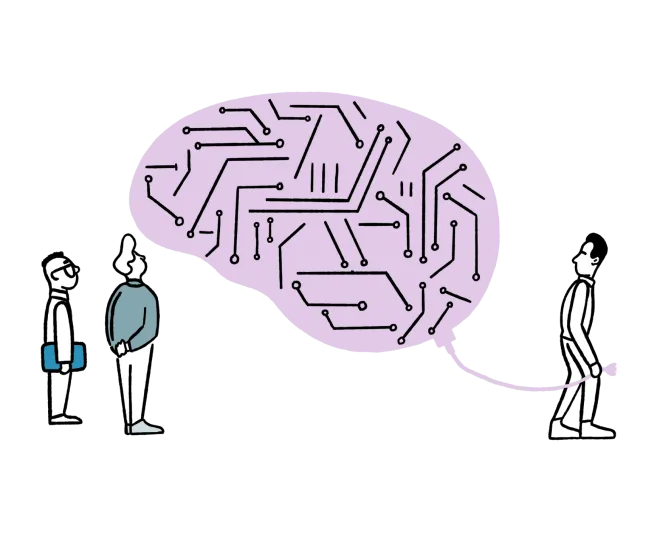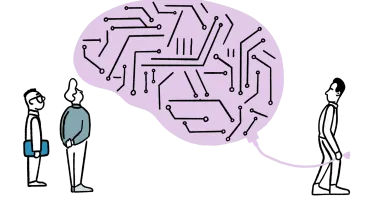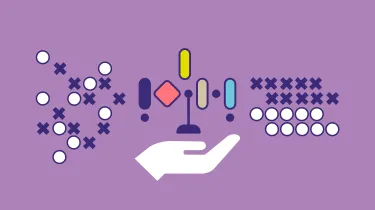Data Literacy
Data competences are a key qualification in the digital age. Being able to understand, critically question, and use data meaningfully prepares people for social, professional, and technological challenges.
Data literacy - the confident use of data - is now a key part of general education and essential for responsibly using and shaping data-driven technologies such as artificial intelligence.
On the AI Campus, you’ll find answers to four central questions: What do I want to do with data? What can I do with data? What am I allowed to do with data? And what should I do with data?


Beate Rhein is Professor of Applied Mathematics and Machine Learning at the Cologne University of Applied Sciences. She has been teaching and researching in the field of data mining for many years, especially in its application in energy technology.

Data Literacy

Claudia Lemke is Professor of Business Informatics at the Berlin School of Economics and Law (HWR Berlin). She has been working on the effects of digitalisation and networking on the economy and society since the end of the 1990s and has published and lectured extensively on this topic, as well as advising companies on digital transformation. More recently, she has focused on ethical issues in dealing with transformative technologies such as artificial intelligence.

Monett Diaz studied computer science at the University of Havana in Cuba from 1987 to 1992, where she also completed her master's degree in computer science from 1995 to 1998. She has lived in Germany since 1999 and initially worked as a research assistant at the Institute for Computer Science at the Humboldt University in Berlin from 2002 to 2005. While teaching at the HWR Berlin from 2003 to 2010, she completed her doctorate in computer science at the Humboldt-Universität zu Berlin in 2005 in the field of agent-based configuration of metaheuristic algorithms, also in the context of artificial intelligence.In the following years, she taught and researched again at the Humboldt-Universität before being appointed professor of computer science at the HWR Berlin in 2010. There she was involved in various projects, including e-learning, a study on the use of big data in human resources and, in 2016/2017, in the interdisciplinary project Bot@HWR, which aimed to expand the research focus on robotics at the HWR. She is also a member of the management team of the "Competence Centre for Digitalisation" at the HWR.

Ute Schmid is Professor of Applied Computer Science, in particular Cognitive Systems. She has been teaching and researching knowledge-based methods of AI and machine learning for more than 15 years. She is internationally visible in the field of human-like machine learning and is currently researching explanation generation and the use of explanations in interactive learning. Ute Schmid also has experience in the development of intelligent tutoring systems and in the use of analogue examples in the context of knowledge and skill acquisition. In addition to a degree in computer science, she also holds a degree in psychology and has many years of experience in empirical research.













